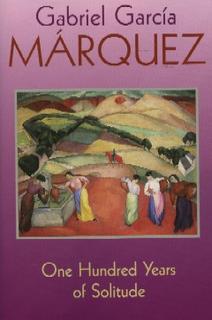
Reading a book written almost four decades earlier is quite often a frustrating experience. Bad novels remain bad with more dust on their covers, but even good works tend to lose credibility as time makes them look haggard.
This leaves us with very few books that still carry that rare character of mystery to a first time reader. Some call this cult favourites, while if these books touch a broader section of audience, they are hailed great.
One distinguishing trait for a book to be dubbed great is its longevity. If it survives maniacal cold wars of one era, followed by sugar-sweet democracies of another and then the subsequent, bustling market-place of globalisation, it has to be a truly great book.
There have been such works which have survived for decades and no worm has gnawed on them enough to decrease, in any way, their spirit. They, like lifelong celebrities, are not allowed a moment of solitude.
Gabriel Garcia Marquez's rip-roaring One Hundred Years of Solitude is one such beauty. Written in the 60s, an era in which world literature rose above the mundane life of English writing, One Hundred... is still fresh for someone who is much younger than the book itself.Along with works like Gunter Grass's Tin Drum and - our own - O.V. Vijayan's Legends of Khasak, Marquez's epic about a bizarre family in an outrageous village called Macondo, is a work that carries the reader to places he wouldn't have dreamt of and introduces characters who are outlandish, yet seem as real as a next door neighbour.
The story (as the age-old lady, Ursula, keeps saying about her life) just goes round and round - from one Aureliano to another, from one Arcadio to another. It does help that Marquez provides us with the family tree of the Buendias, the head of which - Jose Arcadio - finds the enchanted land of Macondo which finds itself surrounded by swamp and sea. The Buendia family grows and grows, as the climate and inhabitants of the village keep changing. If at first a set of intelligent gypsies visit the land with inventions like magnets and ice, in a different era, an English company sets its plant there to the disgust and pleasure of the locals. Wars, babies, science, art, incest and adultery, the village sees, and becomes part of, everything.
Showing an intelligence and imagination of enviable quality, Marquez creates such vibrant characters that it is obvious he has more than an opinion to express, and that the book is as much current affairs as it is magic realism (a term made famous in the literary circle by this book).
The social and political connotations may have been a highlight at the time when One Hundred... was written and to go digging out inferences and decoding metaphors might be a good exercise, but it isn't necessary because the book is too intricately-layered to fall into the category of the ephemeral.
Marquez has provided this book with enough oxygen for it to live and entertain for at least a century. And who knows, even after that it might not be allowed the solitude that runs hauntingly through this brilliant tale.
2 comments:
I hate your opening lines.
I dont know why but thanks for the comment...
Post a Comment